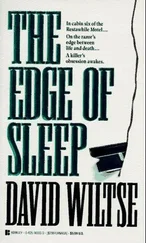David Wiltse - Into The Fire
Здесь есть возможность читать онлайн «David Wiltse - Into The Fire» весь текст электронной книги совершенно бесплатно (целиком полную версию без сокращений). В некоторых случаях можно слушать аудио, скачать через торрент в формате fb2 и присутствует краткое содержание. Жанр: Триллер, на английском языке. Описание произведения, (предисловие) а так же отзывы посетителей доступны на портале библиотеки ЛибКат.
- Название:Into The Fire
- Автор:
- Жанр:
- Год:неизвестен
- ISBN:нет данных
- Рейтинг книги:5 / 5. Голосов: 1
-
Избранное:Добавить в избранное
- Отзывы:
-
Ваша оценка:
- 100
- 1
- 2
- 3
- 4
- 5
Into The Fire: краткое содержание, описание и аннотация
Предлагаем к чтению аннотацию, описание, краткое содержание или предисловие (зависит от того, что написал сам автор книги «Into The Fire»). Если вы не нашли необходимую информацию о книге — напишите в комментариях, мы постараемся отыскать её.
Into The Fire — читать онлайн бесплатно полную книгу (весь текст) целиком
Ниже представлен текст книги, разбитый по страницам. Система сохранения места последней прочитанной страницы, позволяет с удобством читать онлайн бесплатно книгу «Into The Fire», без необходимости каждый раз заново искать на чём Вы остановились. Поставьте закладку, и сможете в любой момент перейти на страницу, на которой закончили чтение.
Интервал:
Закладка:
"Shall we pray together?" Swann asked, his voice calling.
"After," Cooper said. He pushed the little man lower.
I could snap his head off, Cooper thought as he felt the tension rising in his body. I could squeeze hard enough so his head popped right off like a doll's. Not this time he wouldn't. He'd be caught. But starting tomorrow he could pull off all the heads he could find.
Just before he cried out with release he imagined doing it to dozens of clerks and foremen and schoolteachers, one after the other. He saw their faces, men and women, looking so surprised as their necks broke and their heads rolled away.
Karen arrived home to find neither Becker nor Jack there.
A lamb stew sat on the stove, ready to be reheated for dinner. As was Becker's preference, she could detect the heavy presence of scallions and peppers and the usual concoction of Indian spices. The meal would be delicious and the house would smell for several days afterward of cardamom and coriander. This time a thick mat of dark green permeated the stew, giving it the appearance of something skimmed from atop a stagnant pond. With a fingertip, Karen determined that the algae-like substance was spinach cooked to the point of disintegration, and, yes, delicious. Becker's cooking was a fair model for the man himself, she thought: unusual, exotic, and ultimately very savory. But strange, always a little strange.
Passing through the gap in the backyard hedge, Karen walked across the tiny center of six shops and the branch office of a bank that passed for the commercial hub of Clamden. Three years after moving to Clamden, Karen was still amazed that a town so determinedly semirural could exist within an hour's commute of New York City.
Clamden's small-town flavor and undemanding pace was a tribute to the power of its zoning laws. Heavily if not predominantly peopled by refugees from Manhattan who still made their living there, the town nonetheless acted as if it were sealed off from the rest of America in a time capsule, a happy remnant of the 1950s. There actually were still stay-at-home mothers, Karen marveled. She encountered them at evening meetings for parents at the school when she swept in, always a bit late, always a bit harried, the cloud of concerns from her job still buzzing around her head like a swarm of gnats. They would be there in their slacks and Laura Ashley print dresses, chatting aimly about team suppers for the gymnasts and bake sales at the church while Karen sat uneasily in her business suit, a snub-nosed.38 automatic in her purse, her FBI badge tucked in her vest pocket. It was an incongruity that troubled her at times but to others was strangely soothing. Again, a fair description of her life with John Becker.
She found Becker and Jack on one of the three elementary school playgrounds, kicking a soccer ball in the gathering dusk. Becker's friend Tee, the Clamden police chief, was with them, cheering for Jack and occasionally taking a big-footed swat at the ball himself. As was usually the case, it was Tee's voice that carried above the other two, full of self-mocking bluster and general good spirits. Jack was noisy, too, cheering himself and working hard at a sport that did not come naturally. Becker was mostly silent, parrying Jack's attempts to pass him with the ball, yet still quietly encouraging. He moved with an ease and athletic grace that seemed to be a part of everything he did.
Karen thought of the incident with Jack during their climb. The patience that Becker seemed to demonstrate in everything he did, the careful explanation, the genuine understanding of Jack's fear. And yet the odd tilt of his perspective. The insistence on embracing one's fear.
Karen was delighted that Jack had the influence of a man in his life and Jack adored Becker. She loved him herself, she thought. Or at least she did at times, and maybe a sporadic love was all anyone could hope for short of starry-eyed lunacy. It was better than no love at all, and Karen had decided to settle for it, especially as it was interlaced with a very real physical passion that had shown no signs of diminishing. His touch still made her shiver with anticipation and his kiss weakened her knees… And yet…
Karen slipped back into the shadow of the forest that bordered the playground and continued to watch, unseen… And yet there were those moments, those odd, unsettling moments when Karen was not sure who or what she was living with. Nights when she would be aware of his lying wide awake beside her until daybreak, not tossing and turning in a fight with insomnia, but lying there, poised, as if listening for the sound of something that stalked him in the dark. As if only his constant vigilance kept the beasts away.
In her experience all men wrestled with their particular demons, usually urges to infidelity, or drink, or general Responsibility, but those demons were nothing more than imps compared with the devils that struggled for possession of Becker's soul. He had explained his fears to her, of course, and that had only made them the more frightening because, despite her resistance, she had known what he was talking about, she had recognized some of his demons as her own.
Karen walked back to the house she shared with Becker and waited for her family to return. In her purse she held the instrument that might free Becker's demon and allow it to control him once again. He had made no mention of the previous letter that she had brought to him, but his reaction of silent dread had told her how deeply it had touched him. She recognized the same postmark, the same typewritten address. Whatever it was, it continued.
She thought of keeping the letter from him but knew that it was pointless. If the demon was stirring in Becker's soul, only Becker could deal with it. The letter writer would get to him some way eventually, and Becker would have to wrestle with the devil by himself.
At first Becker ignored the letter, leaving it where Karen had dropped it on the coffee table. They went through the evening as if the envelope did not exist, sitting like excrement in the middle of the living room.
It was only at night, when he heard the slightly labored breath that signaled Karen's deeper sleep, that Becker rose quietly from the bed and returned to the living room. The stationery caught the moonlight from the window and glowed, taunting him to continue to ignore it.
The correspondent's device was the same as the first time, the masthead of The New York Times pricked with pinholes. Sitting in the spare bedroom that doubled as an office for both Karen and Becker, he deciphered the message with the Scrabble tiles.
"i know why."
The code at the top of the page was: — another box kite. Becker wrote down 1011 1, then translated it to the number 23.
There was nothing to do but wait until the next day, when he could look up the relevant page and date at the library, so Becker sat in the den pondering the meaning of the code.
His correspondent had chosen to encrypt his message, but why? Not to keep the contents secret from Becker, that much was obvious. Therefore he must have been concerned about interception when he wrote it or when he mailed it. Was he creating his message in the presence of someone who was involved, someone dangerous? Or was his mail read by someone before being sent?
Becker tried to imagine a sequence in which his correspondent sat in the presence of a witness and poked pinholes in a carefully scissored masthead of a three-year-old copy of The New York Times-without attracting attention. It seemed unlikely. The advantage of course would be that the observer would not easily decipher the message, but would that not make the correspondent's actions all the more suspicious?
A second alternative was that the correspondent was fearful of the message being found-once it was created.
Читать дальшеИнтервал:
Закладка:
Похожие книги на «Into The Fire»
Представляем Вашему вниманию похожие книги на «Into The Fire» списком для выбора. Мы отобрали схожую по названию и смыслу литературу в надежде предоставить читателям больше вариантов отыскать новые, интересные, ещё непрочитанные произведения.
Обсуждение, отзывы о книге «Into The Fire» и просто собственные мнения читателей. Оставьте ваши комментарии, напишите, что Вы думаете о произведении, его смысле или главных героях. Укажите что конкретно понравилось, а что нет, и почему Вы так считаете.












